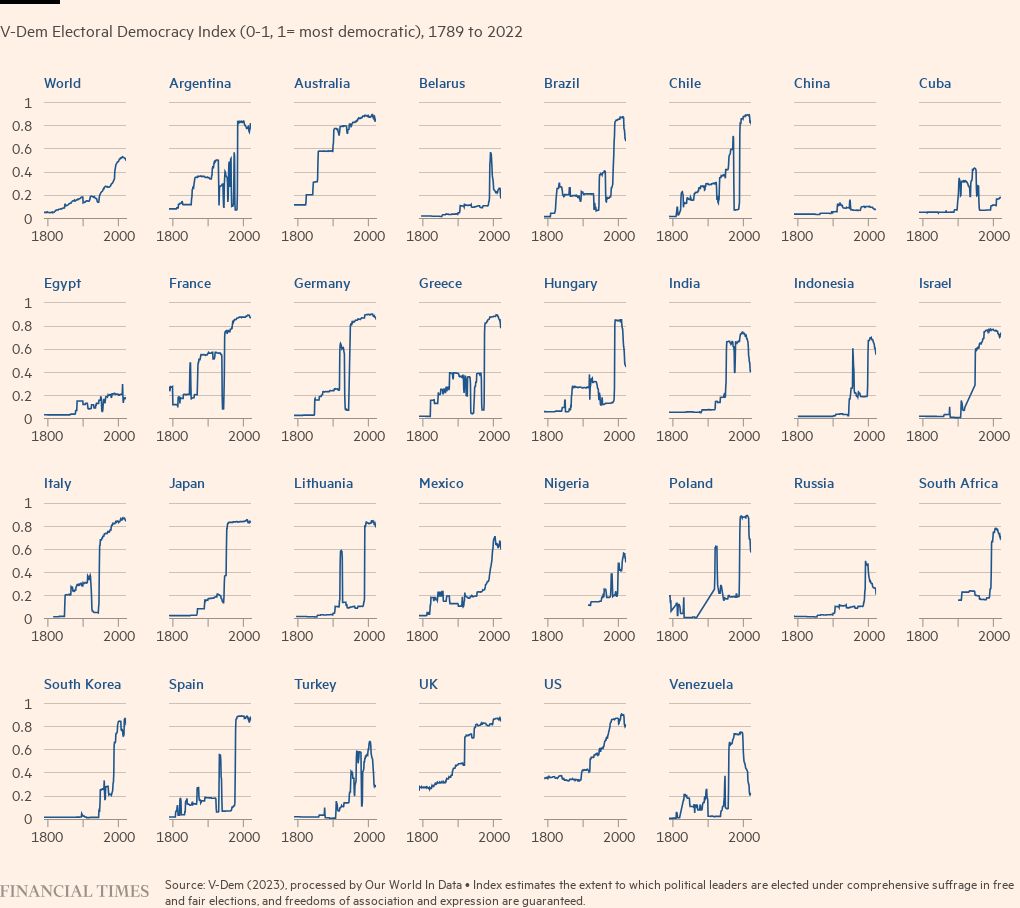Democracy under threat in the ‘year of elections’

Simply sign up to the Geopolitics myFT Digest -- delivered directly to your inbox.
More than 70 states have elections this year, including eight of the 10 most populous countries. But democracy has been on a declining trend globally since 2012, according to research from the University of Gothenburg’s V-Dem Institute.
Although in 2024 about half of the world’s adult population will be entitled to vote, the “year of elections” takes place against a background of growing illiberalism and threats to democratic values and institutions.
The “electoral democracy index”, reproduced for selected countries below, attempts to capture the extent to which elections are free and fair, with comprehensive voting rights, a free media and guarantees on rights of association.
Over 230 years these charts show rising democracy, particularly as the franchise is expanded to working class men and then to women, but also abrupt reversals such as the military coups in Spain (1936), Greece (1967) and Chile (1973).
Rapid advances followed the defeat of fascism in 1945, colonial independence in the 1950s and 1960s and the fall of the Berlin wall in 1989, though declines feature in the past two decades in many countries that remain notional democracies but have elected autocratic leaders and parties, such as India, Turkey and Hungary.


Comments